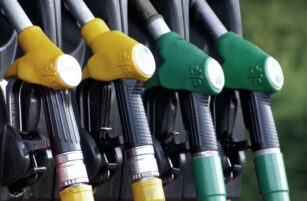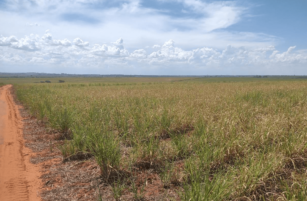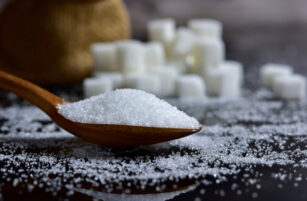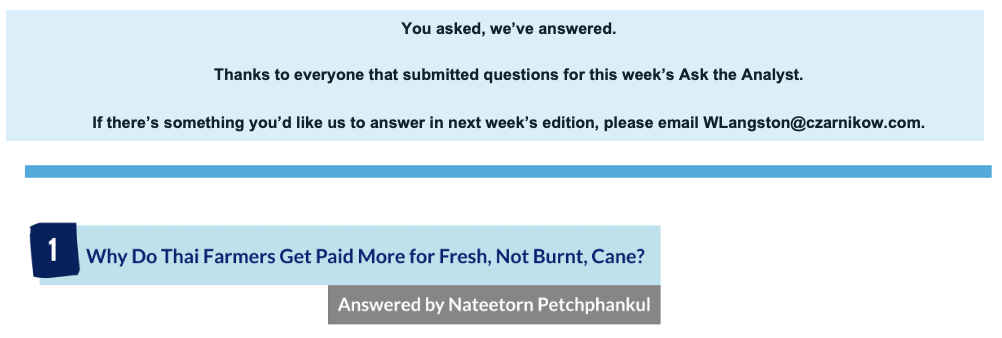
In recent years, the Thai sugar industry has faced growing pressure from the Government and environmental groups to reduce cane burning, as it’s been linked to high levels of smog and pollution across Thailand.
We’ve therefore seen various incentives offered to those that deliver a higher proportion of fresh cane.
The Commercial Cane Sugar (CCS) rating is a measure of the sucrose yield of the cane and is expressed as a percentage. In 2020/21, Thailand’s provisional cane price was set at 920 THB/mt, for those that achieved 10% CCS. However, farmers that received a CCS rating higher than 10% would get 6% of the provisional cane price on top of their payments. And, for every percentage point about 10%, they earnt an additional 55.2 THB/mt.
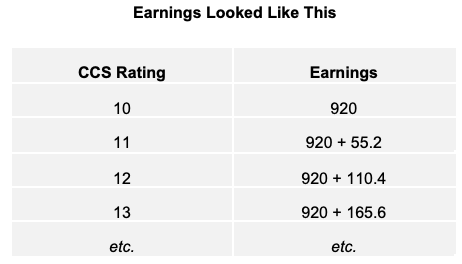
You may be wondering what this has to do with cane burning. Well, broadly speaking, it’s easier to achieve higher CCS (10% or above) with fresh cane production. This is because cane burning generally weakens the sucrose content as the heat reduces the canes’ water and subsequent sucrose (sugar) content.
Moving on, the Government also took 30 THB/mt from farmers that delivered burnt cane this season. This money was equally split between the farmers that delivered fresh cane.
And finally, some mills have offered further top ups to fresh cane deliverers at their own discretion.
The below graphic should help summarise the general picture moving forward.
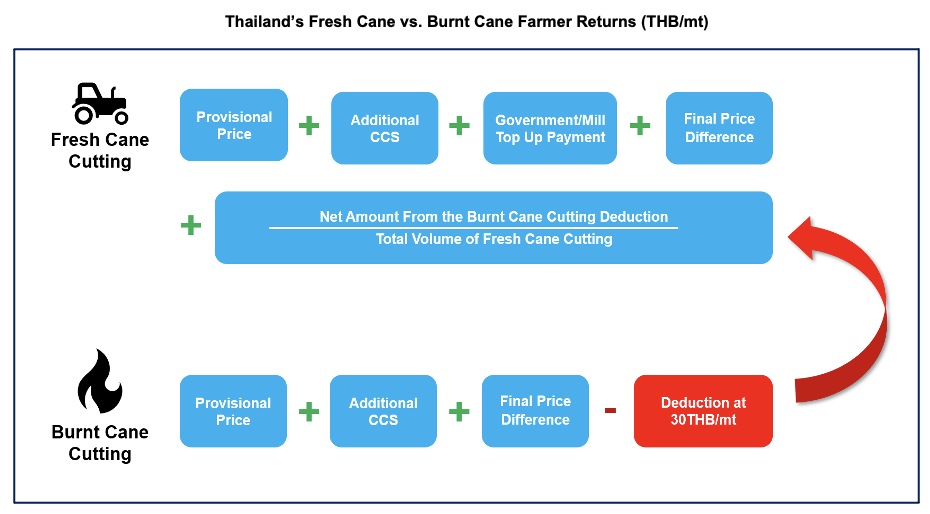

Other Opinions You Might Be Interested In…
- India’s E20 Ethanol Goal and its Cane Molasses Exports
- High Freight Rates Until 2023?
- More Oil: Possible Pressure on Ethanol?
Explainers You Might Be Interested In…





